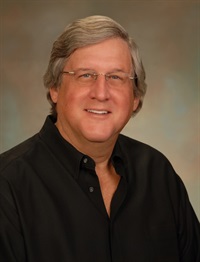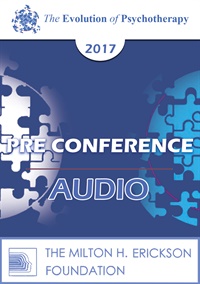EP17 Pre Conference 02 - Utilizing Clinical Hypnosis To Enhance Treatment: Make Your (Inevitable) Suggestions Count - Part 2 - Michael Yapko, PhD
- Average Rating:
- Not yet rated
- Topic Areas:
- Hypnosis | Pre-Conference Sessions | Suggestion | Psychotherapy
- Categories:
- Evolution of Psychotherapy | Evolution of Psychotherapy 2017
- Faculty:
- Michael Yapko, PhD
- Duration:
- 1:11:13
- Format:
- Audio Only
- Original Program Date:
- Dec 12, 2017
- License:
- Never Expires.
Description
Description:
Building on the pragmatic foundation you have already developed as a clinician, you can readily appreciate that sug- gestion is an inevitable part of any treatment modality. The study of clinical hypnosis encourages a deeper under- standing of how you already use suggestive language in your therapy approaches as well as ways to broaden your range of skills in suggesting therapeutic possibilities. Immersion in the practice of clinical hypnosis fosters sensitivity to the unique and subjective aspects of human experience and offers ways to enlist these potentials as positive allies in treatment. In this respect, hypnosis may well be regarded as the original applied “Positive Psychology,” for anyone who practices hypnosis recognizes that people have many more resources than they realize. Hypnosis allows innate resources we all have to be far more accessible, greatly empowering individuals in the process.
This workshop will provide a solid conceptual and practical framework for understanding the dynamic and fascinating field of hypnosis. The emphasis will be on starting to develop some of the core skills for designing and delivering hypnotically based interventions in ways that are consistent with your chosen style of practice. Thus, this workshop will include “hands-on” ex- periences as well as the opportunity to observe and deconstruct a recorded clinical hypnosis demonstration session. People learn best through experience, and hypnosis is a vehicle of focused, experiential learning. Research on the effectiveness of hypnosis highlights the fact that hypnosis enhances treatment outcomes. It is a domain of professional practice that encompasses effective and empowering ap- proaches to psychotherapy (such as skill building, resource accessing and reframing) and behavioral medicine (such as pain management and promoting health and healing). What a privilege to work with people in this way!
Educational Objectives:
- Identify the suggestions inherent in conducting psychotherapy regardless of which specific model of (verbal) psychotherapy under consideration.
- Identify and offer multiple examples of specific forms (structures) of suggestion.
- List and describe at least three different models or conceptual frameworks for understanding hypnosis.
- List and define the so-called “classical hypnotic phenomena” that can be elicited in hypnosis (such as analgesia, time distortion, etc.).
- Describe the potential applications of hypnosis in a variety of contexts, including psychotherapy and behavioral medicine.
- List and describe specific ways people respond differently to suggestions given in hypnosis to those given outside of hypnosis.
*Sessions may be edited for content and to preserve confidentiality*
Credits
Faculty

Michael Yapko, PhD Related Seminars and Products
Michael D. Yapko, Ph.D. (professional psychology, clinical specialization), is internationally recognized for his innovative work in applied clinical hypnosis, developing brief psychotherapies, and the strategic treatment of depression. He has been invited to present his work in more than 30 countries across six continents. He is the author of 15 books, including his most recent, The Discriminating Therapist. He is a recipient of numerous awards for his many contributions to the field, including the Milton H. Erickson Foundation Lifetime Achievement Award.


